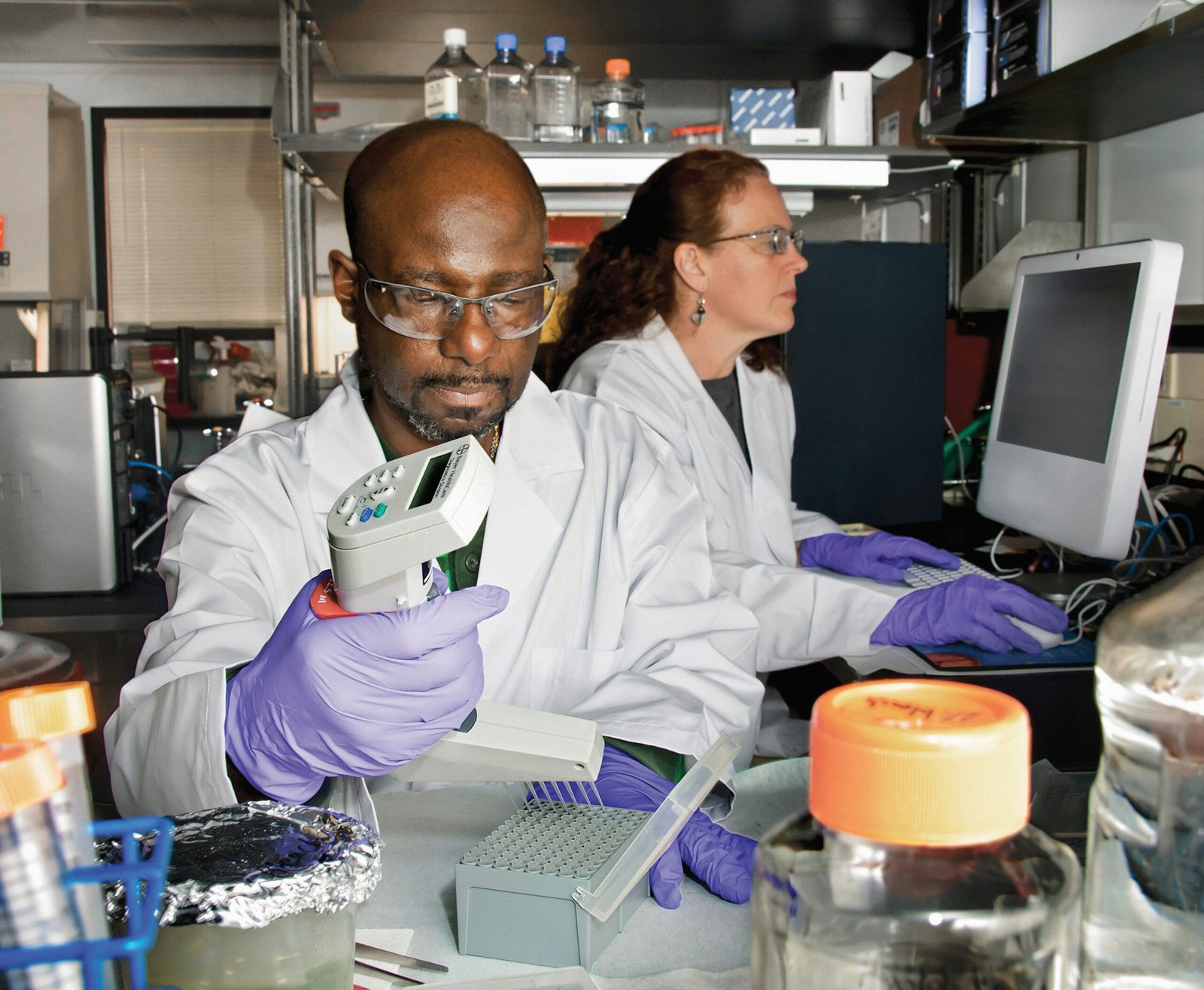The Importance of Public Trust in Science
Public trust in science is a cornerstone for the successful acceptance and implementation of scientific innovations. When the populace places confidence in scientific endeavors, it fosters an environment where new ideas and technologies can thrive. This trust significantly influences public perception of scientific advancements, allowing innovative solutions to be integrated into everyday life. It serves as a bridge between scientific communities and the general public, facilitating communication and understanding of complex ideas.
A strong foundation of trust is particularly vital in discussions regarding policy decisions that rely on scientific evidence. Policymakers often depend on scientific research to inform legislation, particularly in areas concerning public health, environmental sustainability, and technology regulation. If the public perceives the scientific community as credible and transparent, they are more likely to support policies grounded in scientific findings. Conversely, a lack of trust can lead to skepticism and opposition to necessary measures, undermining the progress that could arise from scientific innovation.
The repercussions of dwindling public trust in science can be severe. For instance, public hesitancy towards vaccines, as observed during the COVID-19 pandemic, shows how fragile trust can be and the consequential impact on health initiatives. When communities are divided on scientific evidence, collective efforts to promote health and safety decline significantly. Similarly, environmental policies rooted in scientific research can face resistance, diminishing efforts to combat climate change and protect natural resources.
In an era where science plays an increasingly pivotal role in addressing global challenges, it is essential for scientists, policymakers, and communicators to engage with the public thoughtfully. Nurturing a trustful relationship between science and society supports sustainable progress and enhances the overall well-being of communities.
Key Findings from Recent Surveys
Recent surveys conducted on public trust in scientific innovations have yielded a wealth of insights reflecting current societal attitudes towards science and technology. A central finding from these investigations indicates a moderate level of confidence among the general population, with about 65% expressing trust in the scientific community. Notably, this figure has shown a slight increase compared to previous years, suggesting a gradual rebuilding of confidence following periods of misinformation and skepticism. Demographically, trust appears to be influenced by factors such as age, education, and geographic location.
Younger individuals, particularly those aged 18-34, exhibit higher trust levels in scientific advancements, often exceeding 70%. In contrast, older age groups (55+) tend to display more skepticism, with trust levels falling to around 55%. Educational attainment also plays a crucial role; individuals holding advanced degrees show nearly 75% confidence in science, whereas those without a college education report trust levels closer to 50%. This divergence underscores the importance of scientific literacy in shaping public perception.
Moreover, trust varies significantly across different sectors of science and technology. Medical innovations, such as vaccines and treatments, enjoy a relatively high trust rate of 80%, largely attributed to the visible impact of scientific advancements on public health. On the other hand, emerging technologies such as artificial intelligence and genetic engineering capture more ambivalence, with trust ratings hovering around 55%. This variance may stem from ethical concerns and a lack of understanding of the potential implications associated with these innovations.
Overall, the findings illustrate that while trust in science remains significant, it is not uniformly distributed across demographics or sectors. Understanding these patterns helps to inform public engagement strategies and highlights the need for ongoing education and transparent communication regarding scientific developments.
Factors Influencing Public Trust in Scientific Innovations
Public trust in scientific innovations is shaped by a multitude of factors that collectively inform perceptions and attitudes towards scientific endeavors. One significant aspect is media representation, which plays a crucial role in framing scientific issues for the general public. The manner in which scientific topics are reported can either bolster or erode trust, depending on the accuracy, balance, and context offered in the coverage. Sensationalized reporting or misinformation can lead to skepticism, while well-researched articles can enhance credibility and understanding.
The role of scientists in public engagement is also pivotal in establishing trust. Scientists who actively communicate their research and engage with the community are more likely to foster a positive relationship with the public. This engagement can take many forms, such as public speeches, social media interactions, and participation in community events, all of which serve to demystify scientific work and render it more accessible. Furthermore, when scientists are viewed as trustworthy figures who prioritize transparency and integrity, public confidence in scientific innovations increases.
Educational background significantly influences individual interpretations and acceptance of scientific findings. Individuals with a solid understanding of scientific principles are generally more likely to trust innovations, as they are better equipped to critically evaluate the information presented to them. Conversely, those with limited educational exposure may feel disconnected from the scientific discourse, leading to distrust or misunderstanding.
Political ideologies also affect trust levels, with individuals often aligning their views on scientific matters with their broader political beliefs. Additionally, the proliferation of misinformation, particularly through social media platforms, complicates the landscape of public perception. Misleading or biased information can rapidly spread, eroding trust in legitimate scientific research and advancements. Addressing these nuances is essential for fostering a robust public trust in scientific innovations.
Building and Maintaining Trust in Science
Building and maintaining public trust in scientific innovations is a multi-faceted endeavor that requires active engagement and transparency from scientists. Effective communication practices are essential in conveying scientific knowledge to diverse audiences. Scientists should strive to present their findings in an accessible manner, using language that avoids jargon and technical terminology, while still preserving the integrity and nuance of the research. Utilizing various communication channels, including social media, public forums, and educational outreach programs, can significantly enhance the reach and impact of scientific messages.
Transparency in research plays a critical role in fostering trust. By openly sharing methodologies, data, and results, scientists can reinforce credibility and demonstrate accountability. Public access to research outcomes allows individuals to evaluate the reliability and validity of scientific claims, thus increasing confidence in scientific institutions. It is crucial for scientists to address potential conflicts of interest and acknowledge limitations in their studies, which can help mitigate skepticism and promote a clearer understanding of how findings are derived.
Moreover, community involvement in scientific discourse is vital for bridging trust gaps. Engaging with the public through participatory research approaches or science cafes can facilitate dialogue between scientists and community members. Such interactions provide opportunities for public input and bolster the relevance of research to societal needs. Addressing public concerns and misconceptions is paramount; scientists should actively listen to community queries and provide evidence-based responses to misinformation. By fostering collaborative relationships between scientists and the public, trust can be strengthened, ultimately resulting in a more scientifically literate society that embraces innovation. Trust in science is not an inherent quality; it is cultivated through ongoing efforts to enhance communication, transparency, and community engagement.









